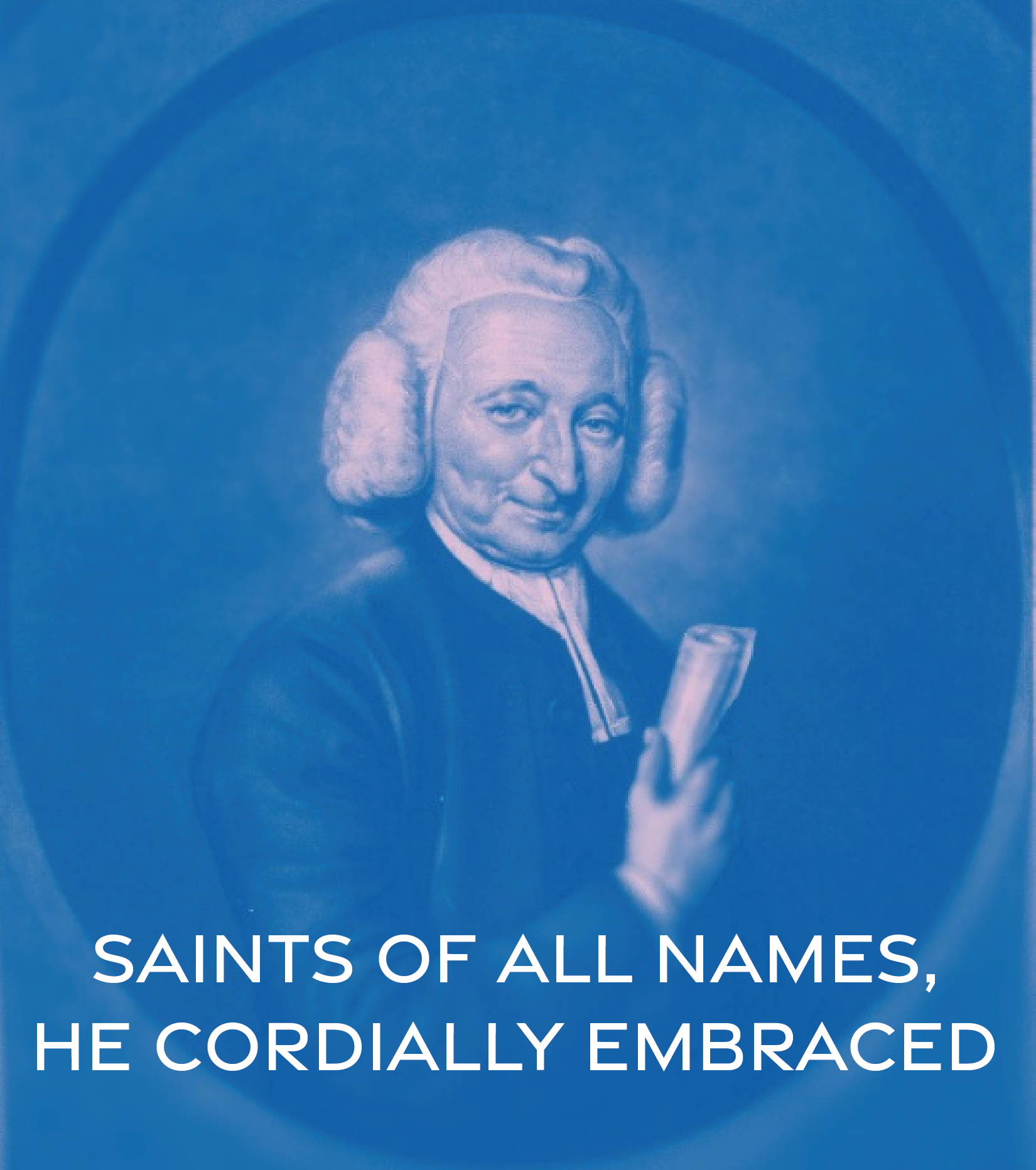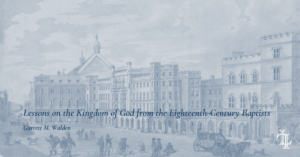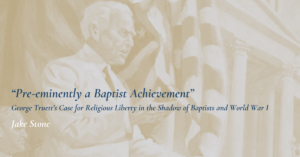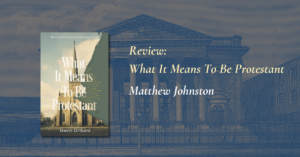By the end of the eighteenth century, Particular Baptists in England were experiencing spiritual renewal after a period of decline. The reasons for this decline are too complex to be attributed to any one thing, but high Calvinism, mistrust toward other denominations, and a spirit of anti-intellectualism each played a part.[1] Andrew Gifford Jr., the pastor at Eagle Street Baptist Church, stands out as a shining light, blazing a trail many after him would follow. Although he was ostracized by many of his fellow London Baptists, Gifford reflects the best of the Baptist tradition in both his Baptist conviction and in his catholic spirit toward others. As Christians seek to address a variety of important issues in an increasingly polarized time, I believe Baptists would do well to emulate the catholicity of Andrew Gifford in their interactions with their peers, without foregoing their deeply held convictions. Since few know of Gifford, in this brief essay, I simply want to introduce you to a new friend and brother and examine some of the contours of Gifford’s heart in ministry. In doing so, I hope that my fellow Baptists (and perhaps even some non-Baptists) might be encouraged to greater expressions of convictional catholicity.
Overview of Life and Ministry
One could say that Andrew Gifford was born to be a Baptist pastor, since both his father, Emmanuel, and his grandfather, Andrew Sr., were Particular Baptist ministers in Bristol.[2] Along with a zeal for evangelism, his father impressed upon him the importance of education. Young Andrew Gifford first studied with a denominationally diverse group of students at Tewkesbury Academy, finishing his education at Gresham College.[3] Many years later, he was awarded a Doctor of Divinity from Marischal College in Aberdeen and was affectionately called by many “the Doctor.”[4] After his time at Gresham, Gifford assisted in ministry at a couple of Baptist churches where his skill as a preacher was quickly recognized. Eventually, in January 1730, Little Wild Street Baptist Church in London unanimously called Gifford to be their pastor.[5] Around this same time, he married his first wife, Martha. She bore him two sons—both of whom unfortunately died shortly after their births. Martha passed away a mere three years after their matrimony. John Gill preached her funeral sermon.[6] Five years later, Gifford married Grace Paynter. They had one child who also died in infancy. Andrew and Grace Gifford spent twenty-five years together before she passed away in 1762.
While at Little Wild Street, Andrew Gifford had “five happy and successful years.”[7] He regularly participated in the coffee house meetings for Particular Baptist ministers—even chairing the meeting once in October of 1734 when John Gill was absent.[8] In the church, Gifford mentored a young man, whom the church sent out to pastor Maze Pond Baptist Church. Gifford also led the church to purchase a new meeting house for his growing congregation.[9] Brian Talbot notes that “the church book records the addition of new members, significant numbers of children being catechized by the pastor, together with an emphasis on prayer and corporate worship.”[10] Everything seemed to be going well. However, as with the death of his wife and children, the thirty-five-year-old Gifford tasted great bitterness in a confusing sequence of events that would alter the course of the rest of his life.
Plainly, Andrew Gifford was accused of acts of homosexuality in the days of his youth.[11] However, no one was accusing him of any current immorality. The nineteenth-century Baptist historian and pastor, Joseph Ivimey, in his retelling of events, sees no validity in the accusation; whereas L.G. Champion, over a hundred years later, admits that one “can be fairly sure that there was some substance in the assertion that at some time, and probably earlier in his life, Gifford had done some wrong.”[12] Even then, Champion leaves room for innocence by hypothesizing that it simply could have been a misunderstanding resulting from a misinterpretation of reports of youthful, inappropriate behavior long left behind.[13] The accusation was never proven, even after an investigation performed by the Baptist Board. In what Ivimey believed to be a grave injustice and break from the established precedent, the seventy-two women of Little Wild Street were prevented from participating in the vote for his removal—all of whom were for the dismissal of the charge and Gifford’s continuation as pastor.[14] By a margin of fifteen votes, Andrew Gifford was removed as pastor of Little Wild Street.[15] As a result, he and the majority of the congregants of Little Wild Street formed what would later be known as Eagle Street Baptist Church.[16] To make matters worse, because the Baptist Board perceived a spirit of divisiveness in this start-up, they disavowed Gifford from their fellowship—even though they cleared him of the allegation.[17]
Thus, despite its undesirable origin, fifty-two men and thirty-nine women from Little Wild Street and Andrew Gifford covenanted together as a new church. They decided “in the fear and presence of God the Father, Son, and Holy Ghost … to continue as a church of Jesus Christ, baptized upon profession of faith, to worship him through the influence of his Holy Spirit, according to the directions given in his word.”[18] Gifford pastored this flock of baptized believers for forty-eight fruitful years from 1735 until his death in 1784.
During his tenure at Eagle Street, Gifford preached evangelistically, rooted himself in the doctrines of grace, and exhibited a firm Baptist conviction while maintaining a willingness to work with outsiders. He ministered alongside the Methodist revivalist, George Whitefield—who was written off as having an “Arminian dialect”—and befriended the Archbishop of Canterbury in the Church of England, Thomas Herring.[19] At the same time, Gifford was proudly Baptist. Over the course of his ministry, he rejoiced to baptize over six-hundred individuals (before he stopped counting)—forty-six of which were baptized in a single day. He commissioned eleven young men into gospel ministry in Baptist churches, and financially supported the education of young Baptist ministers at Bristol Academy.[20] Andrew Gifford’s good friend, John Collett Ryland, aptly sums up Gifford’s ministry when Ryland preached at his graveside, “[Gifford] lived almost all his life … in the exercise of faith in Christ, and repentance towards God; in love to mankind, preaching in an evangelical stain through the whole course of his ministry.”[21]
In addition to his fruitful ministry, Andrew Gifford contributed to the culture of England in a few unique ways. He took quite an interest in collecting coins and was a fellow in the Society of Antiquaries. He regularly lectured on numismatics (the official field of study related to coins and currency) at the British Museum where he served as assistant librarian. His personal coin collection was even purchased by King George II! Gifford also helped further the cause of education through his donations to Bristol Academy. Four years before his death, Gifford funded a “museum to house his valuable collection of bibles, books, manuscripts, pictures, and curiosities … [which included] a complete first edition of William Tyndale’s New Testament.” All of this was purchased from Bristol Bible College by the British Library in 1995.[22] John Rippon alludes to the fact that Gifford “wished to have taken an active part in procuring a Charter and an Endowment for this Seminary [Bristol] as a College, but it seems, the modesty of the present tutors, would not permit them to forward so vast a design.”[23]
In his last days, Andrew Gifford experienced a lot of pain but continued to bless God for Jesus Christ. A month before he passed, Gifford, to the best of his weakened ability, led his congregation in his final communion, emphasizing Isaiah 38:17: “Behold, for peace I had great bitterness: but thou hast in love to my soul delivered it from the pit of corruption: for thou hast cast all my sins behind thy back.”[24] Upon his death in 1784, Gifford left four hundred pounds to Eagle Street, yet again furthering the gospel message and caring for the church he loved.[25]
Baptist Catholicity
As previously stated, I attribute a major part of the success of Andrew Gifford’s ministry to his posture of catholicity toward other believers. While being firmly convinced of Baptist principles, Gifford was connected to, not isolated from, the broader church. Indeed, some of this was by necessity, for after Gifford was removed from Little Wild Street, he was excluded from his Baptist peers. However, two older congregational ministers, Thomas Cole and Isaac Noble, stood by him in his hour of need.[26] Gifford wrote that he owed Noble “most if not all my little usefulness and acceptance, as a father that took me up when all forsook and rejected me.”[27] By necessity then, Andrew Gifford associated with other evangelical ministers from Methodist, Congregational, and Anglican traditions throughout his ministry—only gradually finding favor again among Baptists toward the end of his life. However, his catholicity did not arise simply out of survival instinct, but also out of his evangelical persuasion. During a time when some Baptists were hesitant to give an open invitation for the lost to come to Christ, Gifford was not. In his 1734 sermon on the great storm of 1703, Gifford maintains a high view of divine sovereignty throughout and closes his sermon inviting those experiencing the Spirit’s call to “look unto Jesus, depend on his merit, plead his righteousness, and beg that he would write his law in their hearts, and put his fear into their inward parts.”[28] This desire to see the lost saved moved him to link arms in ministry and friendship with people who some of his peers mistrusted. Thus, while Gifford had significant disagreements with some of his peers on important secondary matters that would preclude them from being members of the same church, he was able to overlook such matters in service to the spread of Christ’s kingdom through the proclamation of the gospel. For Gifford, the gospel was of first importance and the ultimate unifying principle.
Baptist Conviction
At the same time, however, Gifford’s bad past experiences and broad associations did not dampen his Baptist convictions formed by the Second London Confession.[29] Ivimey put it well by saying that “while [Gifford] was of a very catholic spirit, and heartily loved good men of every denomination, he was a zealous Baptist.”[30] Most notably, Gifford retained the Baptist distinctives of congregational governance, a desire to associate with other Baptists, and a joyful embrace of the practice of believer’s baptism.
After what occurred at Little Wild Street, one might expect Gifford to have recoiled from congregational church governance, but that was not the case. On the opening page of Eagle Street’s minute book, it reads, “We whose names are hereunto subscribed . . . agree to continue as a Church.”[31] The decision to continue as a church was not Gifford’s alone, but his congregation’s. Nearly thirty-five years later, some diary entries from a member indicate that this congregational fellowship continued.[32] The membership held regular church meetings at various times, gathered for communal prayer, admitted members after hearing personal testimony, encouraged one another in their walk with Christ, and administered loving church discipline—all as a congregation.[33] Even after nearly four decades with the same congregation, one does not get the sense that church operated under an authoritarian style of leadership. Rather, Eagle Street appears to have been a “warm fellowship” that ministered and made decisions together as a church body.[34]
Although he remained isolated from Baptist life for much of his ministry, Andrew Gifford desired to associate with Baptists. After two years meeting in various locations, in 1737 his church secured a permanent location on Eagle Street.[35] On that opening Sunday, Andrew Gifford extended an invitation for a representative from the London Baptist Society to preach—which was rejected.[36] Although in that opening sermon Gifford reflected on how he felt his fellow Baptists were ignorant of him and his church, he was not content to be ignorant of them.[37] Later in ministry, he successfully reestablished his connections to Baptist life, evidenced by the ministers he sent to preach in other Baptist churches, his generous donations to Bristol Baptist College, and the many friendships he possessed among the next generation of Baptists.
Lastly, Gifford’s Baptist convictions were clearly displayed in his practice of baptism, which he firmly believed ought to occur “upon repentance” by immersion.[38] He proclaimed that believer’s baptism was “a part of Christian obedience, was supported by divine promises, on the accomplishment of which all good men might depend.”[39] At Eagle Street, “baptismal services were the occasion of much rejoicing”—a disposition certainly modeled by the pastor.[40] In his excitement, Gifford would sometimes move straight into an address or burst forth in a hymn of praise, soaking wet and, at times, still standing in the baptismal waters.[41] Nevertheless, Gifford displayed and encouraged “a hearty love for all good men, who are conscientiously of a different mind” and would have rather seen “one soul turn from sin to God, than a thousand merely converted to Baptism.”[42]
A Spirit of Catholicity
Andrew Gifford had no problem ministering with and to people of different traditions. At one point, Gifford attended a gathering with a theologically diverse group consisting of Selina Hastings (Methodist), John Wesley (Methodist), George Whitefield (Methodist), James Hervey (Anglican), John Cennick (Methodist), William Romaine (Anglican), and John Gill (Baptist).[43] They ate breakfast together and held a brief worship service in which Romaine led the doctrinal portion and Gill provided a brief exhortation.[44] This meeting might not seem like much today, but, in a time where Baptists trended toward isolation, this was a positive display of “amicableness” toward non-Baptists.[45] When possible, Gifford was even glad to further the ministry efforts of those outside his tradition—to the point where it was said that “churches of different denominations in town and country, have reason to bless God for members, who were converted to Christ by his instrumentality.”[46] Gifford was the family chaplain of a Congregationalist politician, Sir Richard Ellys. He was a friend of and guest preacher for the Methodist, George Whitefield. He hosted the Welsh revivalist, Howel Harris, who from time to time would visit Gifford’s home. He regularly taught at St. Helen’s “in connection with several ministers of the independent denomination,” and was a personal friend of the Archbishop of Canterbury, Thomas Herring, and William Romaine of the Church of England.[47] One must not get the idea that these were connections Gifford maintained reluctantly. He truly loved and honored these people. His sermon on the storm was dedicated to Ellys and his wife, whose “unaffected piety, prudent zeal, and disinterested benevolence,” Gifford prayed, “[would] long continue ornamental to [their] country and blessings to church of Christ.”[48] And when Gifford published eighteen of George Whitefield’s sermons for circulation in London, he referred to himself in comparison to Whitefield as a “destitute helpless orphan” and simply gave thanks for their friendship in the faith.[49] Simply put, Andrew Gifford joyfully committed himself to the broader unity of faith in the gospel, furthering spread of the good news wherever he could. He lived and ministered with a spirit of Baptist catholicity toward those around him.
Concluding Thoughts
Today, in a religious and political culture marked by polarization, splintering sects, and harsh zealots, Baptists have much to learn from Andrew Gifford. First, Baptists would do well to embrace his evangelical spirituality. The gospel, not politics nor secondary doctrines, ought to be the ground of our unity. Baptists have always been at their best when the conversion of the lost through the faithful witness of the gospel occupied our primary focus. Too often, we let important—but not ultimate—issues take the more honored seat at the table. Like the master of the wedding feast, we need to remove these issues from the seat reserved for the gospel and the essentials of our faith.
Second, Baptists today should lovingly engage with those in the universal church who are likewise committed to the gospel and the historic Christian faith. Like Gifford, we should honor and assist those who are faithfully laboring for the gospel in other denominations. Instead of embracing a hermeneutic of suspicion toward other Christian traditions, what if we honored them as brothers and sisters in Christ and lifted up their gospel ministry? What if we even supported them in their ministry, partnering with them if given the opportunity? Today, we look at someone writing off Whitefield as having “an Arminian dialect” as silly—and rightfully so. Perhaps we would describe much of the denominational mistrust today as silly if we had the proper vantage point.
Lastly, in the embrace of catholicity, Baptists ought not sacrifice or be ashamed of Baptist convictions. We should get excited about doctrines like regenerate church membership, congregationalism, associational fellowship, religious liberty, and believer’s baptism. We should rejoice at every baptism, joyfully cooperate with other Baptists for the advance of gospel ministry, and cheerfully defend religious liberty. Catholicity does not require us to be ashamed of our convictions. We have a rich tradition worth retrieving, defending, and championing. Like Gifford, in our catholicity, we should be zealous Baptists.
I’m convinced that amid the present decline of evangelicalism, which bears some similarities to the decline among the Particular Baptists in England, we would do well to follow in the steps of Andrew Gifford and to live and minister as he did. For as Richard Burnham eulogized Gifford:
“He lov’d to dwell on Jesus, and his cause,
And ev’ry saint had Gifford’s high applause.
Great were his thoughts—to parties not confin’d,
Large was his soul—lover of all mankind, [and]
Saints of all names, he cordially embrac’d.”[50]
[1] Peter J. Morden, “Continuity and Change: Particular Baptist Life in the ‘Long Eighteenth Century’ (1689-1815),” in Challenge and Change: English Baptist Life in the Eighteenth Century, edited by Stephen Copson and Peter J. Morden (Didcot, Oxon: Baptist Historical Society, 2017), 1-28.
[2] Brian Talbot, “Andrew Gifford, Jr. 1700-1784,” in The British Particular Baptists: More Biographical Essays of Notable Particular Baptists, vol. 4, edited by Michael A.G. Haykin and Terry Wolever (Springfield, MO: Particular Baptist Press, 2018), 159. Talbot also postulates that his great-grandfather, Hugh Gifford, was “associated with the growing dissenting movement in the Bristol area from the 1640’s.”
[3] Rippon, Sermon, 38.
[4] Edwin Cannan, “Gifford, Andrew (1700-1784)” in Oxford National Dictionary of Biography, rev. Roger Hayden (Oxford: Oxford University Press, 2004), 22:137; Rippon, 44.
[5] Ivimey, A History of English Baptists, 573-77.
[6] Cannan, “Gifford, Andrew,” 22:137. Talbot, “Andrew Gifford Jr.,” 166. John Gill, The Head of the Serpent Bruised by the Seed of the Woman A sermon on Genesis iii. 15. Occasioned by the Death of Mrs. Martha Gifford, late wife of the Reverend Mr. Andrew Gifford, preached January 14, 1732/33 (London: Aaron Ward, 1733).
[7] Talbot, “Andrew Gifford Jr.,” 168.
[8] Talbot, “Andrew Gifford Jr.,” 168.
[9] W. Paxon, A Brief History of the Baptist Church in Little Wild Street, Lincoln Inn’s Fields (London: G. Wightman, 1835),8.
[10] Talbot, “Andrew Gifford Jr.,” 168.
[11] Cannan, “Gifford, Andrew,” 22:137.
[12] Ivimey, A History of English Baptists, 579. L.G. Champion, Farthing Rushlight: The Story of Andrew Gifford 1700-1784 (London: The Carey Kingsgate Press, 1961), 41-42.
[13] Champion, Farthing Rushlight, 42.
[14] Ivimey, A History of English Baptists, 592. Talbot, “Andrew Gifford Jr.,” 168.
[15] Talbot, “Andrew Gifford Jr.,” 168.
[16] Talbot, “Andrew Gifford Jr.,” 168. Joseph Ivimey later became the pastor at Eagle Street Baptist Church and performed the bulk of his ministry there.
[17] Champion, Farthing Rushlight, 41. Champion notes that, although the board removed him for supposed divisiveness, they still “regarded him as a public preacher of the Gospel.”
[18] “First Minute Book of the Eagle Street Church 1737-1785,” 1, quoted in Talbot, “Andrew Gifford Jr.,” 171.
[19] Talbot, “Andrew Gifford Jr.,” 175-7. Michael Haykin, “‘Until the Spirit be poured upon us from on High’: Prayer and Revival Among the English Particular Baptists in the Eighteenth Century,” Puritan Reformed Journal 12, no. 1 (2020): 80.
[20] Rippon, Sermon, 45, 50-51.
[21] John Ryland, “A Serious Address,” 1784, quoted in Rippon, Sermon, 83. See also Ivimey, A History of English Baptists, 604-5. Ivimey identified Ryland as a close personal friend.
[22] Cannan, “Gifford, Andrew,” 22:163
[23] Rippon, Sermon, 51.
[24] Ivimey, A History of English Baptists, 592.
[25] Rippon, Sermon, 45. Gifford’s will was executed by his six deacons—one of whom became a Christian under his ministry and had been a member of his church for forty-two years!
[26] Talbot, “Andrew Gifford Jr.,” 170.
[27] Andrew Gifford, “Handwritten Note for Funeral Sermon for Thomas Cole,” 1742, quoted in Talbot, “Andrew Gifford Jr.,” 170.
[28] Andrew Gifford, A Sermon in Commemoration of the Great Storm, Commonly Called the High Wind in the Year 1703 (London: Aaron Ward, 1734), 23.
[29] Rippon, Sermon, 43.
[30] Ivimey, A History of English Baptists, 602.
[31] “First Minute Book of the Eagle Street Church,” 1, quoted in Talbot, “Andrew Gifford Jr.,” 171.
[32] L.G. Champion, “Baptist Church Life in London, 1771,” The Baptist Quarterly 18, no. 7 (1960): 302-03.
[33] L.G. Champion, “Baptist Church Life in London, 1771,” The Baptist Quarterly 18, no. 7 (1960): 302-03.
[34] Champion, “Baptist Church Life,” 304.
[35] Ivimey, A History of English Baptists, 579.
[36] Ivimey, A History of English Baptists, 579.
[37] Ivimey, A History of English Baptists, 593.
[38] John Evans, A Sketch of the Denominations of the Christian World: Accompanied With a Persuasive to Religious Moderation to Which Is Prefixed an Account of Atheism, Deism, Theophilanthropism, Judaism, Mahometanism, and Christianity, 9th ed. (London: James Cundee, 1804), 146.
[39] Evans, A Sketch of the Denominations, 146.
[40] Champion, “Baptist Church Life,” 301.
[41] Rippon, Sermon, 47.
[42] Rippon, Sermon, 45-47.
[43] Tom Nettles, “John Gill and the Evangelical Awakening,” in The Life and Thought of John Gill (1697-1771): A Tercentennial Appreciation, edited by Michael Haykin (Leiden: Brill, 1997), 155. Tom Nettles references a nineteenth century biography of Selina Hastings for this account. It would have been great to be a fly on the wall at this meeting!
[44] Nettles, “John Gill and the Evangelical Awakening,” 155.
[45] Nettles, “John Gill and the Evangelical Awakening,” 155.
[46] Rippon, Sermon, 44-45.
[47] Ivimey, A History of English Baptists, 598-602. Raymond Brown, The English Baptists of the 18th Century (London: Baptist Historical Society, 1986), 80-81, 157.
[48] Gifford, The Great Storm, A2.
[49] Andrew Gifford, preface to Eighteen Sermons Preached by the Late Rev. George Whitefield (London: Joseph Gurney, 1771).
[50] Richard Burnham, “An Elegy on the Death of Andrew Gifford, D.D.,” (London: H. Trapp, No. 1, Pater-noster Row, 1784), quoted in Ernst Payne, “An Elegy on Andrew Gifford,” The Baptist Quarterly 9, no. 1: 55.
Author
-

Hunter Hindsman is a pastor at MeadowBrook Church in Gadsden Alabama. He has received his Masters of Divinity from SWBTS and is a current Ph.D. candidate in the Historical and Theological Studies program at SBTS where he is focusing on early church history. He serves as the patristic theology editor for the London Lyceum. He’s married to his wife, Taylor, and is the father of Joanna, Mason, Jack, and Melanie.
View all postsRecent Posts



